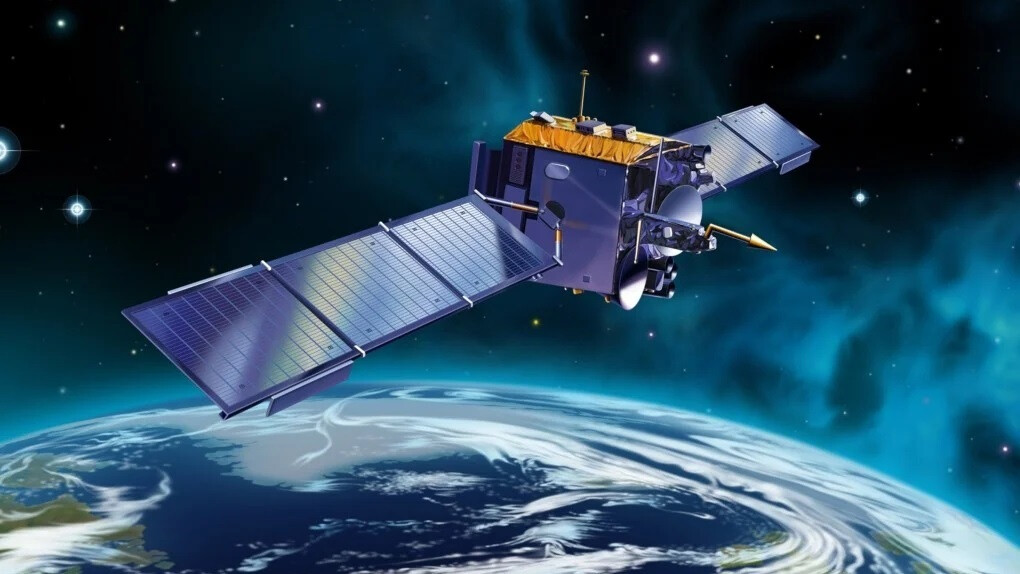
Singaporean scientists have warned of a potential hacking vulnerability in China's quantum communication network's 'Micius' satellite, publishing research suggesting that subtle time delays between laser pulses could be exploited by eavesdroppers.
Launched in 2016, China's 'Micius,' also known as 'Mozi,' the world's first quantum science satellite, aims to enhance communication security between two points on Earth through quantum entanglement-based quantum secret key distribution. Quantum communication is a method of information transmission that uses quantum physics-based encryption to encode data into single photons (light particles). While Quantum Key Distribution (QKD) is theoretically considered unhackable, a warning has emerged that subtle flaws in its practical implementation can act as vulnerabilities for 'side-channel attacks.'
Laser Time Delay as a Key Vulnerability
Alexander Miller, a quantum researcher in the Department of Physics at the National University of Singapore, pointed out the potential hacking possibility of the Micius satellite in an online preprint (non-peer-reviewed) paper on May 10. Through an analysis of communication data between ground stations and the Micius satellite, he discovered subtle time delays between the lasers mounted on the quantum transmitter within the satellite. He asserted that these "subtle delays could provide ample opportunity to hack Micius."
According to Miller's analysis, typical time delays between laser diodes exceeded 100 picoseconds (one picosecond is one trillionth of a second), with the largest delay reaching 300 picoseconds. Miller explained that this time inconsistency shows the potential for a hypothetical attacker to distinguish 'decoy states' from signal states with over 98.7% accuracy during the quantum key distribution process. The decoy state protocol is designed to defend against 'photon-number-splitting' attacks, where eavesdroppers can exploit multi-photon states that may arise from weak laser sources. The theoretical basis is that by transmitting signal states and decoy states using randomly chosen intensity levels, the sender prevents the eavesdropper from knowing which pulse is a signal and which is a decoy. However, Miller argues that time delays between lasers can lead to serious flaws in this assumption.
Contradiction with Previous Reports and Future Challenges
Miller noted that the Micius satellite's laser diodes were previously reported to be synchronized with 10 picosecond accuracy, but his new data contradicts these reports. He mentioned that the reason for this is not yet clear, but it could be due to a problem within the satellite's quantum transmitter. Since each laser is controlled independently, such a problem could be an unexpected outcome.
This study once again demonstrates how vulnerable realistic quantum communication devices can be despite the theoretically proven security of QKD protocols. Miller emphasized the importance of proper time synchronization and the ability to configure time delays, especially for space missions where it is difficult to change parameters in orbit. He suggested that "stringent pre-flight tests should be performed before spacecraft launch," and "special commands to control temperature, current, time delays, and other parameters on the ground should also be considered." He also mentioned the alternative of using a single-laser-based QKD transmitter but added that this also does not guarantee the complete elimination of side channels.
Current State and Future of Quantum Communication
Quantum Key Distribution is based on the fundamental principles of quantum mechanics: 'state change upon measurement' and the 'no-cloning theorem.' This means that if someone attempts to intercept and measure a quantum bit (qubit), its state will be altered, thereby allowing the detection of eavesdropping attempts. However, commercial QKD systems struggle to use perfect single-photon sources and utilize weak laser pulses, meaning multiple photons can be transmitted simultaneously. In this case, a 'photon-number-splitting attack' is possible where an eavesdropper intercepts one photon and transmits the rest. The decoy state protocol was introduced to address this problem, but Miller's research shows that even these theoretical defense mechanisms can be rendered ineffective due to subtle flaws in actual implementation.
China has played a leading role in building a quantum communication network through the Micius satellite, achieving remarkable results, including successfully demonstrating the world's first satellite-to-ground quantum communication link. In 2023, it was reported that Russia and China successfully completed satellite-based quantum communication tests spanning approximately 4,000 km using the Micius satellite. However, Miller's research results suggest that a deeper re-examination of the claim of 'absolute security' for these quantum communication networks is necessary.
Miller's analysis of the Micius satellite was based on experimental data obtained from communication sessions between the Zvenigorod Observatory ground station in Russia and the satellite from October 2021 to March 2022. Although this research is a preprint that has not yet undergone formal peer review, it once again highlights the importance of bridging the gap between theoretical security and realistic implementation in the practical application of quantum communication technology. For quantum communication to establish itself as a key technology for secure information exchange in the future, thorough analysis and countermeasures against such side-channel attacks are essential.
[Copyright (c) Global Economic Times. All Rights Reserved.]






























